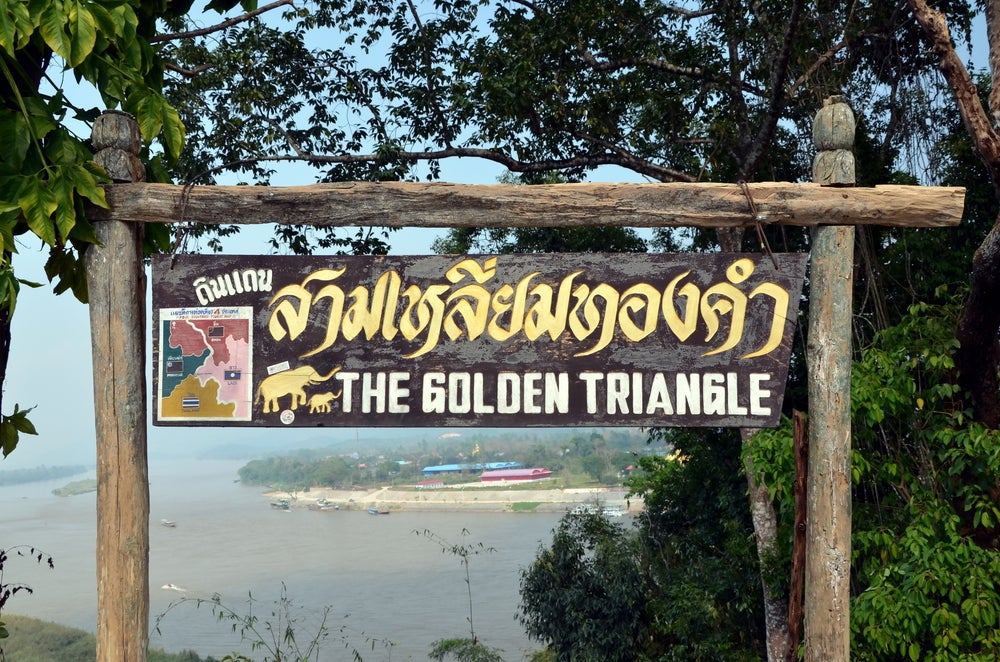In February 2022, authorities raided the Golden Triangle Special Economic Zone (SEZ) in Laos, freeing dozens of Chinese women from forced prostitution.
For years, the Golden Triangle SEZ has been home to numerous illegal industries including human trafficking, wildlife smuggling and drugs production. Despite this, the zone has announced significant expansion plans.
SEZs are business parks or cities that have been granted exemptions from most national-level economic regulations. They often enjoy tax breaks, different labour laws, special visa rights, import/export exemptions and streamlined regulations. There are more than 7,500 SEZs in 100 countries worldwide. The overwhelming majority of SEZs are legitimate centres of industry. They play key roles in the global tech, manufacturing, supply chain, logistics and tourism industries. However, a small minority of SEZs, such as the Golden Triangle, have been implicated in serious issues that threaten the credibility of the entire industry.
The shame of the Golden Triangle SEZ
On 5 February 2022, Laotian police raided the Golden Triangle SEZ, rescuing six women who were victims of human trafficking. The women came from impoverished backgrounds in southern China. Recruiters told them that they could have lucrative jobs as telemarketers in the Kings Roman Casino, the anchor tenant of the zone. When they failed to meet sales quotas, their employers declared that they were in debt. The women were then brought to local pimps, who separated the ones considered beautiful from the rest. Some of the women were sent to brothels; the others were forced to work in the laundry service of the casino.
In January, eight women staged a daring escape where, in the middle of the night, they met up with human rights activists who helped them escape the zone’s fence. After repeated complaints by the authorities, they carried out the raid, which would rescue six more women.
Authorities have now rescued 50 Thai women from the Golden Triangle SEZ, although, according to Laotian authorities, there may be up to 200 more women of other nationalities still trapped there. Some of the women have reportedly been enslaved there for up to a decade. In 2012, 50 women were rescued after similar complaints led to a similar bust.

US Tariffs are shifting - will you react or anticipate?
Don’t let policy changes catch you off guard. Stay proactive with real-time data and expert analysis.
By GlobalDataLaotian authorities are powerless to act – the Golden Triangle’s status as an SEZ means that authorities cannot enter in the absence of a formal complaint. The zone is run by the Chinese-owned Kings Roman Corporation, based out of Hong Kong.
On 29 January, the second-largest drug seizure in Asian history occurred right outside of the Golden Triangle SEZ. Authorities caught four men in a nearby village attempting to smuggle 36 million pills of methamphetamine to Thailand. Authorities speculated that the meth was produced in the Golden Triangle SEZ, and was ultimately destined for lucrative markets such as China and Australia. An Australian federal police official stationed in the area estimated that between 60% and 80% of all of Australia’s methamphetamine came from the Golden Triangle region.
The World Wildlife Fund also warns that the Golden Triangle SEZ is a hotbed of wildlife smuggling. Endangered species such as tigers, elephants, bears and pangolins are sold and butchered there for use in Chinese traditional medicine. The number of illegally held animals has significantly increased since the beginning of 2022.
Why can’t Golden Triangle SEZ be closed down?
Human trafficking, methamphetamine production and wildlife smuggling barely scratch the surface, however. The zone was built on stolen indingenous land, workers are routinely unpaid and forced to work against their will, and the zone regularly dumps toxic waste into local streams.
SEZ officials do not deny any of the human trafficking, drug smuggling or wildlife smuggling. However, they say that this is being done by tenants and not by the zone itself. SEZ officials have agreed to pass new labour rules designed to protect women in the zone, but critics worry that these are just token reforms.
Despite everything, Laotian authorities are unwilling to shut down the zone. This is partially due to pressure from the Chinese, but also because the rest of the country outside of the zone is also chaotic. Local authorities are barred from entering and international inspectors are routinely turned away.
Instead, the government of Laos is doubling down. The Golden Triangle SEZ is currently building a new international airport to attract more Chinese tourists. Zone management is also investigating a possible expansion of the zone, which might result in more land expropriation from nearby communities.
The expansion of the Golden Triangle SEZ should be seen as an embarrassment to the global SEZ industry. Despite this, none of the major international SEZ trade associations – the World Free Zones Organisation, the Africa Economic Zones Organisation, or the Free Zone Association of the Americas have publicly condemned the Golden Triangle SEZ.
International SEZ organisations must issue statements publicly condemning the Golden Triangle SEZ. Doing so would cost them nothing – a single press release, an email blast to their newsletter audiences and a public statement condemning the project. It would, however, have a significant impact – it would give activists in Laos and the Mekong region more ammunition to pressure the government to shut down the zone. It would also send a message to international investors to stay away. Failure to properly address zones such as the Golden Triangle actively damages the credibility of the SEZ trade associations. It creates a false perception that these groups stand to gain by enforcing the status quo. In reality, international zone associations have everything to lose by failing to publicly condemn bad SEZs.
Strongly worded statements will not solve the problems of the Golden Triangle and other SEZs that fall below the required standards of decency, but they will send a message to the Golden Triangle – and other problematic zones – that they are being watched.




